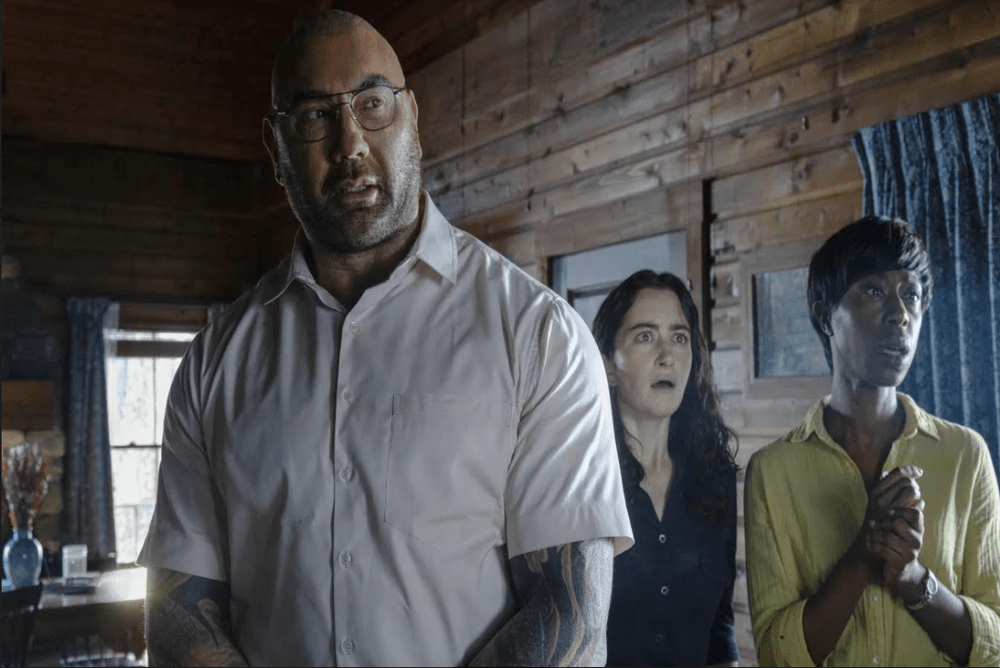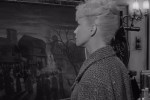“Make the choice” demands the advertising tag line for M. Night Shyamalan’s theocratic thriller, Knock at the Cabin (2023), which comes with a tagline as heavy with political implications as its peremptory plot. The latter’s orthodox overtones, a curious mix of cultish Christianity, archaic aggression and sectarian spectacle, retrospectively seem the plausible progression for a director whose films are littered with conspiracy theories, quasi-Christian lore, and a constant emphasis on patriarchal family values. The cornerstones of religion and reactionism are accompanied by a pattern of often intertwined key motives neatly fitting into a set of larger concepts: being chosen or singled out to play a specific role, a divine plan or predetermined fate, and an existential truth which protagonists either can’t see or refuse to believe.
Shyamalan’s forcefully forward allegories, which transmit these ideas along with an unwavering approval of the gospel, make for a curious series of faith based movies. Signs has a father regain his faith while discovering that crop circles are indeed caused by aliens. The Sixth Sense already spells out in its title the faith which the central story of purgatory is rooted. The Village pairs an exaltation of “blind faith” with surveillance schemes. The Unbreakable series mixes political paranoia with modernized myths of angels and demons. Old embraces traditional family values and the idea of big pharma plotting. Even the Edgar Allan Poe inspired low budget thriller The Visit evolves around deadly deception, validated suspicion, and the importance of biological family bonds. Read more








